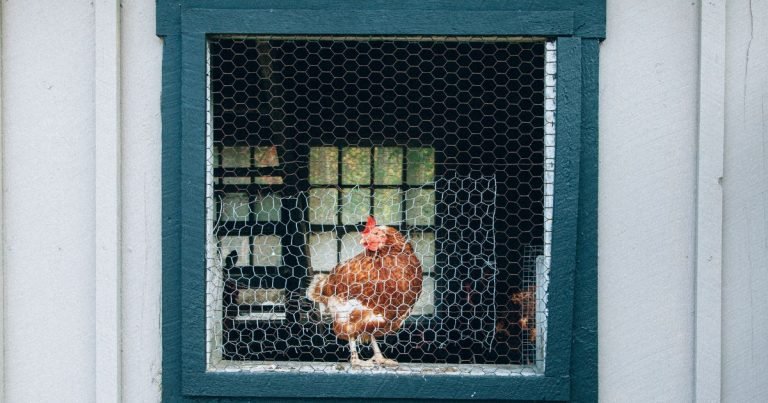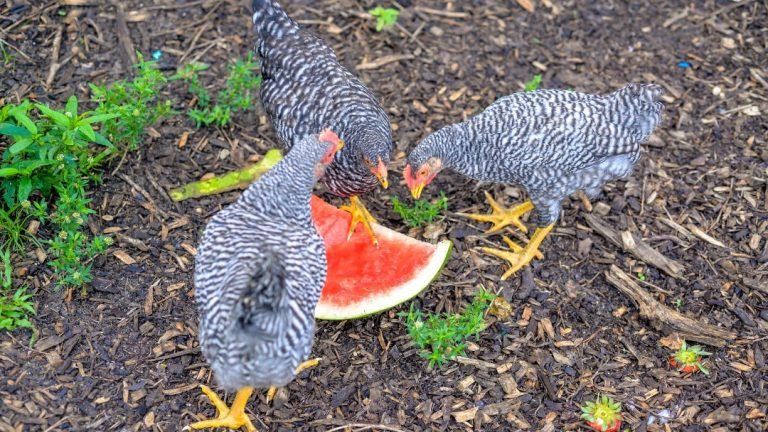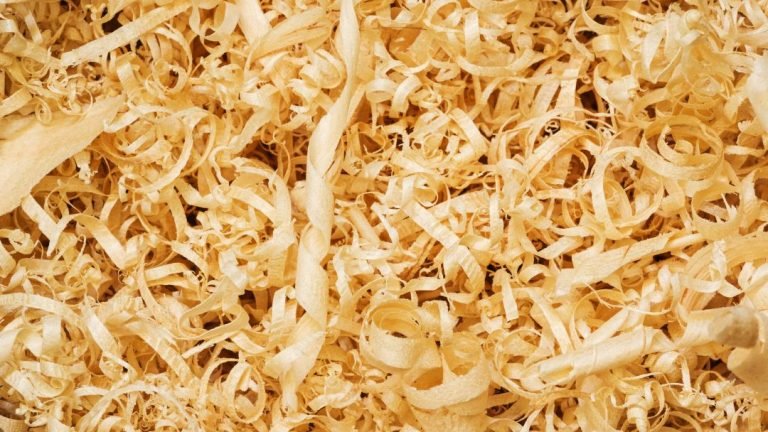Watery egg whites can be caused by various factors but are generally safe to eat. Egg whites can sometimes appear watery due to the age of the egg, excessive heat during cooking, or the presence of naturally occurring enzymes.
While watery egg whites may affect the appearance and texture of dishes, they are typically safe for consumption. It is important to ensure that eggs are properly stored and cooked to eliminate the risk of bacterial contamination. We will explore the causes of watery egg whites and discuss whether they are safe to eat.
Understand The Causes And Ensure Safety
htmlIntroduction To The Phenomenon Of Watery Egg Whites
Watery egg whites can be a puzzling phenomenon for many home cooks and food enthusiasts. When cracking open an egg, you expect to see thick and gelatinous egg whites. However, there are times when the egg whites appear watery and thin. So, what causes this inconsistency in texture? Let’s dive deeper and explore the potential causes.
Causes Of Watery Egg Whites
Several factors can lead to the occurrence of watery egg whites. Here are some common causes:
- Age of the eggs: As eggs age, the proteins in the egg whites deteriorate, leading to a loss of coagulating ability. This can result in watery egg whites.
- Heat stress: Exposing eggs to excessive heat or temperature fluctuations can cause the proteins in the egg whites to denature, leading to a reduction in their ability to hold together and form a gel-like texture.
- Quality of the eggs: Eggs from older or lower-quality hens may contain a higher amount of naturally occurring protease enzymes. These enzymes can break down the proteins in the egg whites, resulting in a watery consistency.
- Poor storage: Improper storage conditions, such as keeping eggs in a warm and humid environment, can accelerate protein degradation and affect the texture of the egg whites.
Ensuring Safety When Encountering Watery Egg Whites
While watery egg whites may seem unappetizing, they are generally safe to eat as long as the eggs have been properly stored and remain within their expiration date. However, it’s essential to ensure the eggs are thoroughly cooked to minimize any potential risks of foodborne illnesses. Here are some tips to follow:
- Cook eggs thoroughly: Always cook eggs until both the whites and yolks are fully set. This helps eliminate any harmful bacteria that may be present, ensuring the safety of your meal.
- Avoid consuming raw or undercooked eggs: Raw or undercooked eggs, including dishes like sunny-side-up eggs or soft-boiled eggs, may pose a higher risk of salmonella contamination. Stick to fully cooked eggs to reduce the risk.
- Check for freshness: When using eggs with watery egg whites, confirm the expiration date and perform the float test if you’re unsure. Fresh eggs tend to sink in water, while older eggs will float due to air pockets that develop over time.
- Store eggs properly: Ensure your eggs are stored in a cool and dry place, like the refrigerator, to maintain their freshness and reduce the risk of protein degradation.
By understanding the causes of watery egg whites and following proper safety measures, you can confidently use and enjoy your eggs without compromising your health or taste. Remember, fresh and properly cooked eggs are the key to a safe and satisfying culinary experience.
1. Understanding Watery Egg Whites
Watery egg whites can be quite perplexing, especially if you’re used to seeing the thick and jiggly consistency that egg whites typically possess. But fear not, for we are here to shed light on this fascinating phenomenon. In this section, we will delve into the characteristics of watery egg whites and explore the possible impact they might have on your favorite recipes and egg-based dishes.
Characteristics Of Watery Egg Whites
Watery egg whites, as the name suggests, are simply egg whites that have a higher water content than usual. When cracked open, the egg white might appear more liquid and less viscous. Instead of being gelatinous and transparent, it might have a translucent or even milky appearance. This unique characteristic is what sets watery egg whites apart from their thicker counterparts.
Several factors can contribute to watery egg whites. Firstly, the age of the eggs can play a role. As eggs age, the proteins in the egg whites begin to break down, resulting in a loss of viscosity. Additionally, the freshness of the eggs can also affect their water content. Older eggs tend to have higher water content, which can lead to watery egg whites.
Another possible cause of watery egg whites is the presence of a small amount of egg yolk in the whites. Even a tiny speck of yolk can hinder the formation of a strong protein matrix, leading to a watery consistency. Ensuring that the eggs are properly separated can help minimize this issue.
Possible Impact On Recipes And Egg-based Dishes
Watery egg whites may have a slight impact on your recipes and egg-based dishes, but fear not, as it’s usually insignificant. When whisking egg whites to create meringues or soufflés, the watery consistency may require a bit more effort and time to achieve the desired stiff peaks. However, with patience and persistence, you can still achieve excellent results.
In recipes where egg whites are required for binding or structure, such as in cakes or cookies, the slight increase in water content might lead to a slightly moist texture. This can actually be an advantage in some cases, as it can contribute to a more tender and moist end product.
Nevertheless, if the recipe specifically calls for beaten egg whites to provide volume or leavening, it’s important to take extra care when dealing with watery egg whites. Ensure that the egg whites are properly whipped and firm before incorporating them into your recipe. This will reduce the risk of compromising the final texture and consistency.
Overall, watery egg whites are safe to eat and shouldn’t cause any concerns. They might require some adjustments in certain recipes, but with a little adaptability, you can still enjoy delicious egg-based dishes without any issues.
2. Factors Contributing To Watery Egg Whites
2. Factors Contributing to Watery Egg WhitesWhen it comes to cooking eggs, achieving the perfect consistency is essential. However, sometimes you may encounter watery egg whites, which can be puzzling. There are several factors that contribute to this issue, including the age of the eggs, temperature, egg quality and freshness, and storage conditions. Let’s explore each of these factors in detail.Age of the eggs and its effect on egg whites’ consistencyThe freshness of eggs plays a significant role in determining the consistency of the egg whites. As eggs age, the protein structure begins to break down, resulting in watery egg whites. When eggs are fresh, the protein strands are tightly bound together, creating a firm and stable structure. However, as the eggs age, the proteins become weaker, causing the egg whites to become runny.Effects of temperature on egg whitesTemperature also plays a crucial role in the consistency of egg whites. When eggs are exposed to high temperatures or fluctuations in temperature, the proteins in the egg whites can become denatured. This denaturation causes the proteins to lose their structure, resulting in watery egg whites. Therefore, it is important to handle eggs with care and store them at a consistent temperature to maintain their desired consistency.Influence of egg quality and freshnessNot all eggs are created equal, and the quality and freshness of the eggs can impact the consistency of the egg whites. Eggs from chickens raised in optimal conditions tend to have better protein structure, resulting in firmer egg whites. On the other hand, eggs from chickens with poor diets or stressful living conditions may have weaker proteins, leading to watery egg whites. Additionally, using eggs that are past their expiration date can also contribute to watery egg whites.The role of storage conditions in watery egg whitesProper storage conditions are vital in maintaining the consistency of egg whites. When eggs are stored in a humid environment, such as the refrigerator door, condensation can form on the shell. This moisture can penetrate through the shell and thin out the egg whites, resulting in a watery consistency. To prevent this, it is best to store eggs in the main body of the refrigerator, where the temperature and humidity are more controlled.To summarize, several factors can contribute to watery egg whites. The age of the eggs, temperature fluctuations, egg quality and freshness, and storage conditions all play a part in determining the consistency of the egg whites. By understanding these factors, you can make informed choices when cooking with eggs and ensure that your egg whites turn out just the way you want them – firm and delicious.3. Investigating The Safety Of Watery Egg Whites
Is It Safe To Consume Watery Egg Whites?
When encountering watery egg whites, one of the first questions that may arise is whether they are safe for consumption. While this texture deviation can be off-putting and unexpected, it doesn’t necessarily render the eggs unfit to eat. In fact, watery egg whites can be caused by various factors and are generally considered safe as long as they meet certain criteria and guidelines.
Identifying Potential Health Risks
While watery egg whites may not pose an immediate threat to health, it is essential to identify any potential health risks that could be associated with this texture anomaly. One such risk is the potential presence of bacteria, primarily Salmonella Enteritidis, which can cause foodborne illness. As a precaution, it is crucial to consume properly cooked eggs to minimize the risk of bacterial contamination. Cooking eggs thoroughly can effectively eliminate any harmful bacteria and ensure the safety of the watery egg whites.
Guidelines For Determining The Safety Of Watery Egg Whites
When evaluating the safety of watery egg whites, there are a few guidelines that can provide reassurance:
- Cooking: Ensure that the eggs are cooked thoroughly until both the yolk and egg whites are completely set and firm. This will help eliminate any potential bacterial contamination, reducing the risk of foodborne illnesses.
- Freshness: Check the expiration date on the egg carton and perform the float test. Fresh eggs sink in water while older eggs tend to float due to the air pocket that forms inside as they age. Opt for fresh eggs to minimize the risk of watery egg whites.
- Storage: Properly store eggs in the refrigerator at a temperature below 40°F (4°C). This helps maintain their freshness and quality, reducing the likelihood of watery egg whites.
- Appearance and odor: Inspect the eggs before use. Discard any eggs that have an off-putting odor or unusual appearance, such as cracks or discoloration.
- Source: Purchase eggs from reputable sources and ensure they are produced and handled in sanitary conditions. This can reduce the chances of contamination and enhance the safety of the egg whites.
By adhering to these guidelines, you can determine the safety of watery egg whites and enjoy them without worry. Remember that maintaining good hygiene practices in handling and cooking eggs is essential for food safety.
4. Preventing And Addressing Watery Egg Whites
Dealing with watery egg whites can be frustrating, but there are several tips, techniques, and adjustments that can help you prevent or salvage recipes affected by this issue. By following these steps, you can ensure that your egg-based dishes turn out perfectly every time.
Tips For Preventing Watery Egg Whites
When it comes to preventing watery egg whites, a little bit of precaution can go a long way. Here are some simple yet effective tips:
- Always choose fresh eggs: Fresh eggs tend to have stronger protein bonds, resulting in firmer whites.
- Store eggs properly: Store eggs in their original carton in the refrigerator, as exposure to air can lead to moisture loss and watery whites.
- Avoid excess moisture: Before using your eggs, make sure to dry them thoroughly with a clean kitchen towel to remove any excess moisture.
- Use room temperature eggs: Allowing your eggs to come to room temperature before using them can help maintain the stability of their protein structure, resulting in less watery whites.
Techniques To Salvage Recipes With Watery Egg Whites
If you find yourself facing watery egg whites in a recipe, don’t worry, you can still salvage it with a few techniques:
- Whisking: Increase the whisking time to help incorporate more air into the mixture, which can compensate for the watery consistency.
- Whipping cream of tartar: Adding a small amount of cream of tartar to the egg whites while whipping can help stabilize the proteins and prevent them from becoming too watery.
- Reducing liquids: If your recipe includes other liquids, such as milk or water, consider reducing the amount slightly to counterbalance the extra moisture from the watery egg whites.
- Adjusting baking time and temperature: Keep a close eye on your baked goods and adjust the baking time and temperature, if needed, to ensure they cook thoroughly despite the watery whites.
Adjusting Cooking Methods To Counteract The Effects Of Watery Egg Whites
When it comes to cooking methods, a few adjustments can help counteract the effects of watery egg whites:
- Stir-frying: If you’re stir-frying with egg whites, make sure to cook them quickly over high heat to evaporate excess moisture and prevent them from becoming too watery.
- Poaching: To prevent watery poached eggs, add a small amount of vinegar or lemon juice to the poaching liquid. The acidity helps the egg whites coagulate more quickly.
- Baking: For recipes that require baking egg whites, ensure that your oven is properly preheated, as a higher initial temperature can help set the proteins and prevent excessive water release.
5. Expert Insights And Pro Tips
When it comes to dealing with watery egg whites, there’s no one better to turn to for advice than professional chefs and bakers. These culinary experts have encountered their fair share of watery egg whites and have developed some valuable insights and pro tips over the years. Whether you’re looking for advice on how to handle watery egg whites or creative ways to use them in your recipes, these expert insights will surely come in handy.
Advice From Professional Chefs And Bakers On Dealing With Watery Egg Whites
Professional chefs and bakers have mastered the art of working with egg whites, and they have some valuable advice to share when it comes to dealing with the watery ones. Here are some tips from the experts:
- Avoid excessive moisture: One common reason for watery egg whites is excessive moisture. To prevent this, make sure your bowls and utensils are completely dry before whipping the egg whites. Any moisture can interfere with the structure and cause them to become watery.
- Use fresh eggs: Fresh eggs tend to have firmer and less watery whites. When possible, opt for fresh eggs for your recipes to enhance the stability of the egg whites.
- Separate eggs carefully: When separating eggs, be careful not to allow any yolk into the whites. Even a small amount of yolk can hinder the ability of the egg whites to whip properly.
- Whip at room temperature: Egg whites whip better when they are at room temperature. Allow them to sit out for about 30 minutes before whipping for best results.
- Add cream of tartar or lemon juice: Adding a small amount of cream of tartar or lemon juice to the egg whites can help stabilize them and prevent them from becoming watery. Just a pinch should do the trick!
Creative Uses For Watery Egg Whites In Culinary Applications
While watery egg whites may not be ideal for certain recipes that require volume and stability, they can still be put to good use. Here are some creative ideas from chefs and bakers on how to utilize watery egg whites:
- Light and fluffy omelettes: Instead of discarding your watery egg whites, use them to make light and fluffy omelettes. They may not hold their shape as well, but they will still add a delicate texture to your breakfast creations.
- Whisked into soups and sauces: Watery egg whites can be whisked into soups and sauces to add a touch of richness and body. They will blend seamlessly into the mixture, giving your dishes a velvety finish.
- Flourless desserts: Whisking watery egg whites into flourless desserts, such as flourless chocolate cake or macarons, can contribute to their light and airy texture. The watery consistency won’t be as much of an issue in these recipes.
- Marshmallow-like toppings: Whip your watery egg whites with sugar to create a sweet, marshmallow-like topping for pies or dessert mousses. The watery consistency will actually work in your favor, resulting in a unique and fluffy texture.
Insider Tips For Detecting And Avoiding Watery Egg Whites In Your Recipes
To ensure your recipes turn out perfectly every time, it’s important to be able to detect and avoid watery egg whites. These insider tips from chefs and bakers will help you maintain the quality of your egg whites:
- Check for freshness: Before using eggs, always check their freshness by performing the float test. Fresh eggs will sink in water, while stale eggs will float.
- Examine the consistency: When separating eggs, examine the consistency of the egg whites. Properly whipped egg whites should hold their shape and form stiff peaks. If they appear watery, it’s best to start fresh.
- Store egg whites properly: If you have leftover egg whites, store them in an airtight container in the refrigerator. This will help preserve their freshness and prevent them from becoming watery.
- Gradually incorporate ingredients: When folding watery egg whites into a batter or mixture, do so gradually and gently. This will help maintain the structure and prevent further wateriness.
- Pay attention to recipe instructions: Always follow the recipe instructions carefully, especially when it comes to whipping and incorporating egg whites. Each recipe may have specific techniques that can help you avoid watery results.
Conclusion
To conclude, watery egg whites can occur due to various factors such as the chicken’s age, diet, or even improper storage. While it may look concerning, watery egg whites are generally safe to consume as they still retain their nutritional value.
However, if you notice any unusual odors or discoloration, it’s best to discard the eggs. Remember to handle and store eggs properly to maintain their freshness and quality.




